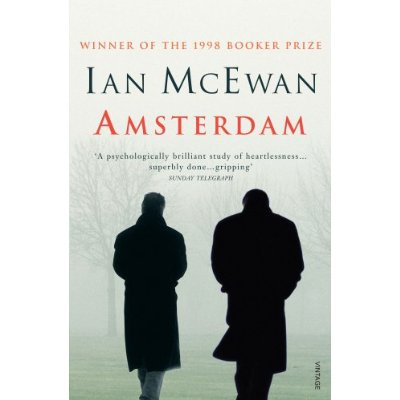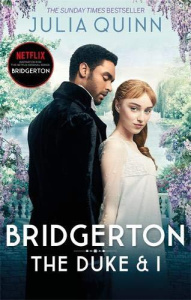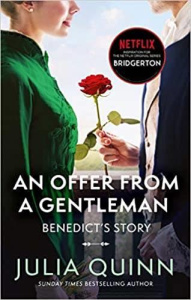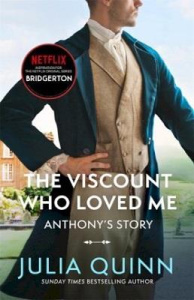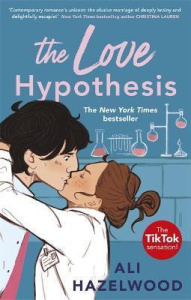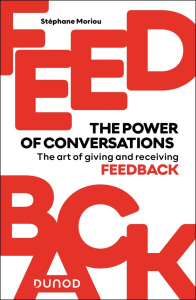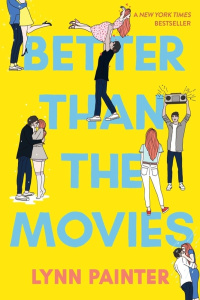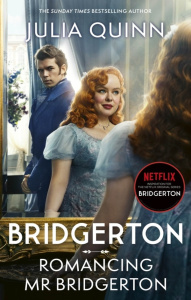Amsterdam
Extrait
Two former lovers of Molly Lane stood waiting outside the crematorium chapel with their backs to the February chill. It had all been said before, but they said it again.
"She never knew what hit her." "When she did it was too late." "Rapid onset." "Poor Molly." "Mmm."
Poor Molly. It began with a tingling in her arm as she raised it outside the Dorchester Grill to stop a cab--a sensation that never went away. Within weeks she was fumbling for the names of things. Parliament, chemistry, propeller she could forgive herself, but less so bed, cream, mirror. It was after the temporary disappearance of acanthus and bresaiola that she sought medical advice, expecting reassurance. Instead, she was sent for tests and, in a sense, never returned. How quickly feisty Molly became the sickroom prisoner of her morose, possessive husband, George. Molly, restaurant critic, gorgeous wit, and photographer, the daring gardener, who had been loved by the foreign secretary and could still turn a perfect cartwheel at the age of forty-six. The speed of her descent into madness and pain became a matter of common gossip: the loss of control of bodily function and with it all sense of humor, and then the tailing off into vagueness interspersed with episodes of ineffectual violence and muffled shrieking.
It was the sight now of George emerging from the chapel that caused Molly's lovers to move off farther up the weedy gravel path. They wandered into an arrangement of oval rose beds marked by a sign, THE GARDEN OF REMEMBRANCE. Each plant had been savagely cut back to within a few inches of the frozen ground, a practice Molly used to deplore. The patch of lawn was strewn with flattened cigarette butts, for this was a place where people came to stand about and wait for the funeral party ahead of theirs to clear the building. As they strolled up and down, the two old friends resumed the conversation they had had in various forms a half-dozen times before but that gave them rather more comfort than singing "Pilgrim."
Clive Linley had known Molly first, back when they were students in '68 and lived together in a chaotic, shifting household in the Vale of Health.
"A terrible way to go."
He watched his own vaporized breath float off into the gray air. The temperature in central London was said to be twelve degrees today. Twelve. There was something seriously wrong with the world for which neither God nor his absence could be blamed. Man's first disobedience, the Fall, a falling figure, an oboe, nine notes, ten notes. Clive had the gift of perfect pitch and heard them descending from the G. There was no need to write them down.
He continued, "I mean, to die that way, with no awareness, like an animal. To be reduced, humiliated, before she could make arrangements, or even say goodbye. It crept up on her, and then . . ."
He shrugged. They came to the end of the trampled lawn, turned, and walked back.
"She would have killed herself rather than end up like that," Vernon Halliday said. He had lived with her for a year in Paris in '74, when he had his first job with Reuters and Molly did something or other for Vogue.
"Brain-dead and in George's clutches," Clive said.
George, the sad, rich publisher who doted on her and whom, to everyone's surprise, she had not left, though she always treated him badly. They looked now to where he stood outside the door, receiving commiseration from a group of mourners. Her death had raised him from general contempt. He appeared to have grown an inch or two, his back had straightened, his voice had deepened, a new dignity had narrowed his pleading, greedy eyes. Refusing to consign her to a home, he had cared for her with his own hands. More to the point, in the early days, when people still wanted to see her, he vetted her visitors. Clive and Vernon were strictly rationed because they were considered to make her excitable and, afterward, depressed about her condition. Another key male, the foreign secretary, was also unwelcome. People began to mutter; there were muted references in a couple of gossip columns. And then it no longer mattered, because the word was she was horribly not herself; people didn't want to go and see her and were glad that George was there to prevent them. Clive and Vernon, however, continued to enjoy loathing him.
As they turned about again, the phone in Vernon's pocket rang. He excused himself and stepped aside, leaving his friend to proceed alone. Clive drew his overcoat about him and slowed his pace. There must be over two hundred in the black-suited crowd outside the crematorium now. Soon it would seem rude not to go over and say something to George. He got her finally, when she couldn't recognize her own face in the mirror. He could do nothing about her affairs, but in the end she was entirely his. Clive was losing the sensation in his feet, and as he stamped them the rhythm gave him back the ten-note falling figure, ritardando, a cor anglais, and rising softly against it, contrapuntally, cellos in mirror image. Her face in it. The end. All he wanted now was the warmth, the silence of his studio, the piano, the unfinished score, and to reach the end. He heard Vernon say in parting, "Fine. Rewrite the standfirst and run it on page four. I'll be there in a couple of hours." Then he said to Clive, "Bloody Israelis. We ought to wander over."
"I suppose so."
But instead they took another turn about the lawn, for they were there, after all, to bury Molly.
With a visible effort of concentration, Vernon resisted the anxieties of his office. "She was a lovely girl. Remember the snooker table?"
In 1978 a group of friends rented a large house in Scotland for Christmas. Molly and the man she was going about with at the time, a QC named Brady, staged an Adam and Eve tableau on a disused snooker table, he in his Y-fronts, she in bra and panties, a cue rest for a snake and a red ball for an apple. The story handed down, however, the one that had appeared in an obituary and was remembered that way even by some who were present, was that Molly "danced naked on Christmas Eve on a snooker table in a Scottish castle."
"A lovely girl," Clive repeated.
She had looked right at him when she pretended to bite the apple, and smiled raunchily through her chomping, with one hand on a jutting hip, like a music hall parody of a tart. He thought it was a signal, the way she held his gaze, and sure enough, they were back together that April. She moved into the studio in South Kensington and stayed through the summer. This was about the time her restaurant column was taking off, when she went on television to denounce the Michelin guide as the "kitsch of cuisine." It was also the time of his own first break, the Orchestral Variations at the Festival Hall. Second time round. She probably hadn't changed, but he had. Ten years on, he'd learned enough to let her teach him something. He'd always been of the hammer-and-tongs school. She taught him sexual stealth, the occasional necessity of stillness. Lie still, like this, look at me, really look at me. We're a time bomb. He was almost thirty, by today's standards a late developer. When she found a place of her own and packed her bags, he asked her to marry him. She kissed him, and quoted in his ear, He married a woman to stop her getting away/Now she's there all day. She was right, for when she went he was happier than ever to be alone and wrote the Three Autumn Songs in less than a month.
"Did you ever learn anything from her?" Clive asked suddenly.
In the mid-eighties Vernon too had had a second bite, on holiday on an estate in Umbria. Then he was Rome correspondent for the paper he now edited, and a married man.
"I can never remember sex," he said after a pause.
"I'm sure it was brilliant. But I do remember her teaching me all about porcini, picking them, cooking them."
Clive assumed this was an evasion and decided against any confidences of his own. He looked toward the chapel entrance. They would have to go across. He surprised himself by saying rather savagely, "You know, I should have married her. When she started to go under, I would have killed her with a pillow or something and saved her from everyone's pity."
Vernon was laughing as he steered his friend away from the Garden of Remembrance. "Easily said. I can just see you writing exercise yard anthems for the cons, like what's-her-name, the suffragette."
"Ethel Smyth. I'd do a damn better job than she did."
The friends of Molly who made up the funeral gathering would have preferred not to be at a crematorium, but George had made it clear there was to be no memorial service. He didn't want to hear these three former lovers publicly comparing notes from the pulpits of St. Martin's or St. James's, or exchanging glances while he made his own speech. As Clive and Vernon approached they heard the familiar gabble of a cockt...
--Ce texte fait référence à l'édition
Broché
.
12,99 €
Sur commande
EAN
9780099272779
Caractéristiques
| EAN | 9780099272779 |
|---|---|
| Titre | Amsterdam |
| ISBN | 0099272776 |
| Auteur | Ian Mc Ewan |
| Editeur | VINTAGE |
| Largeur | 130mm |
| Poids | 185gr |
| Date de parution | 05/04/2001 |
| Nombre de pages | 0 |
| Emprunter ce livre | Vente uniquement |


